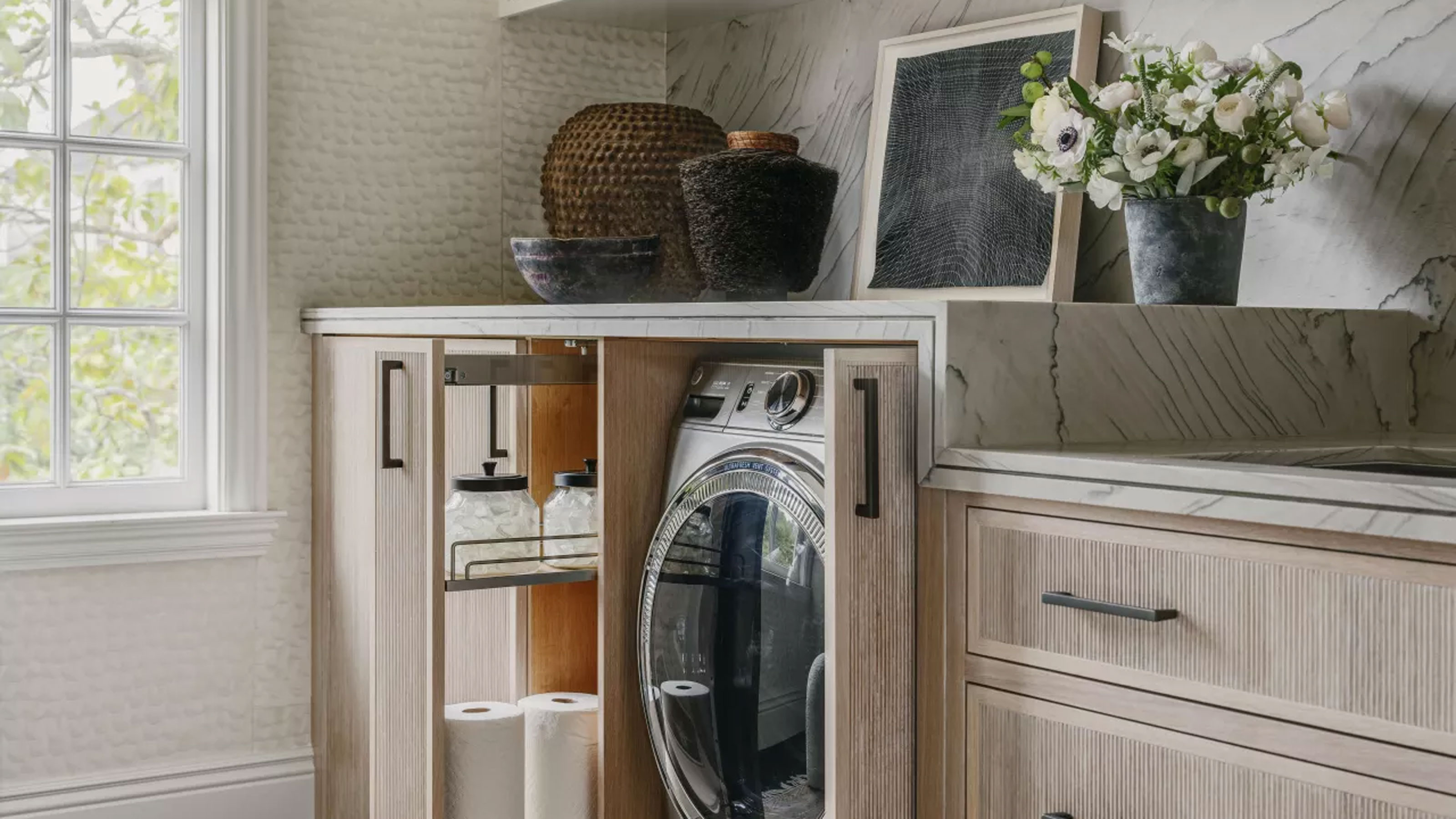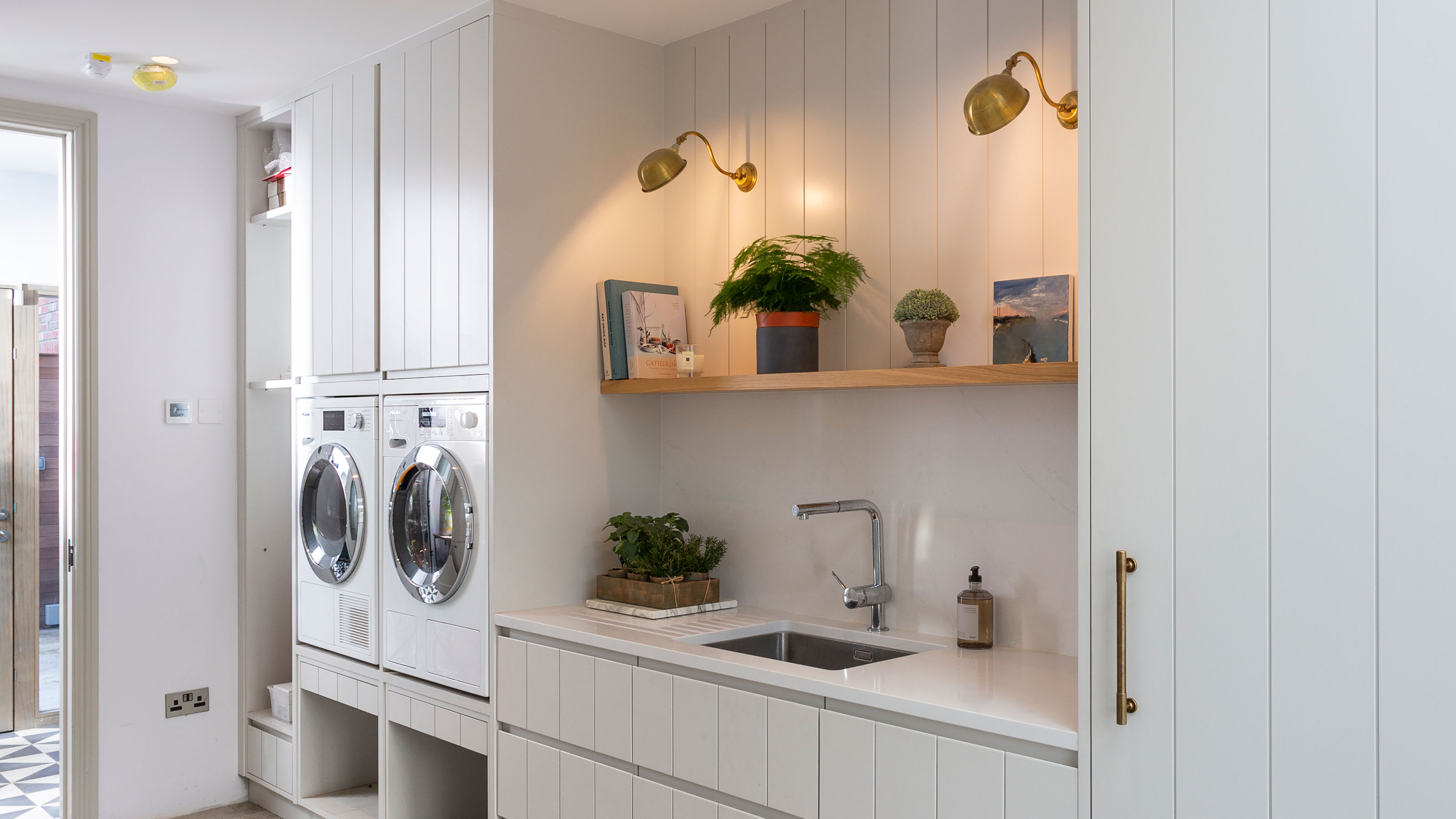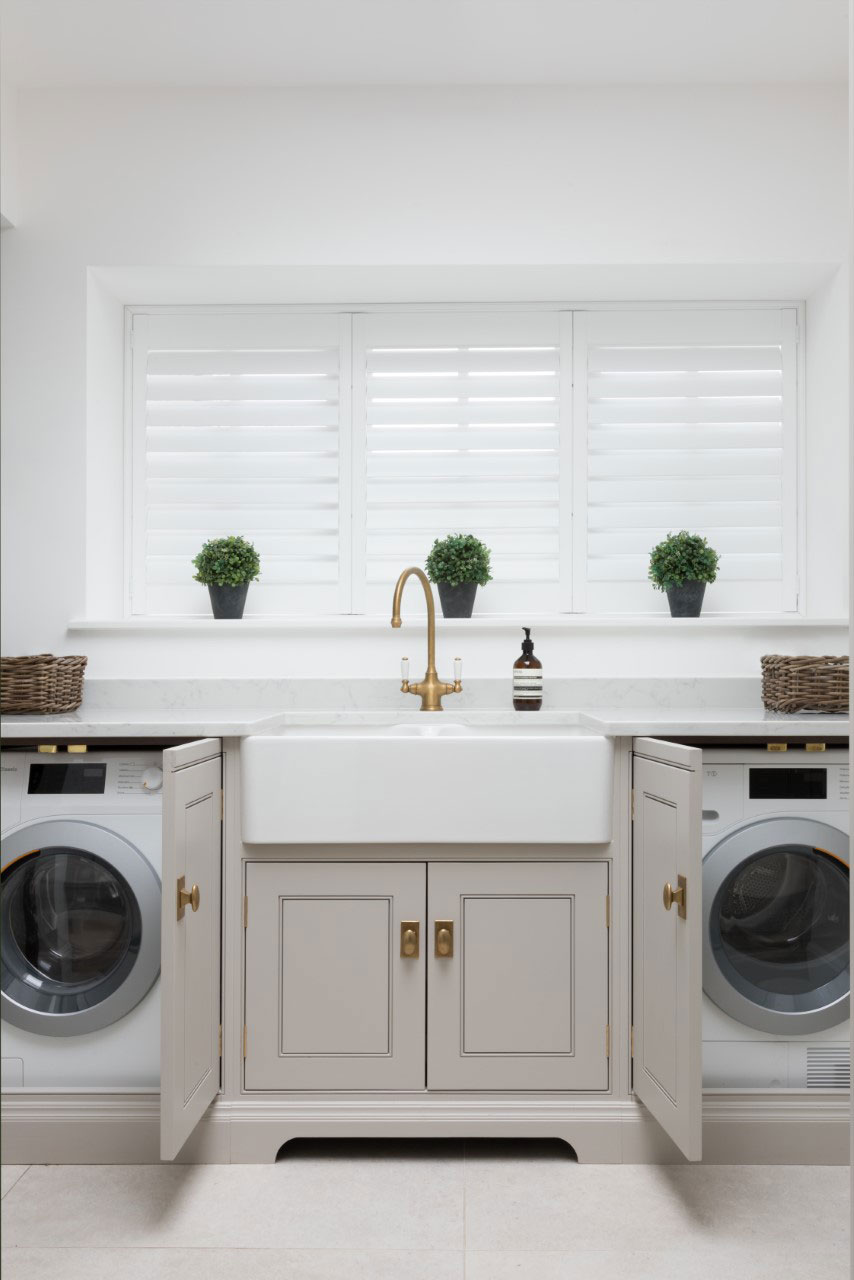How to Make Homemade Laundry Detergent — It's Natural, Quick and Easy, Says Our Cleaning Expert
Use it for washing clothing, bedding, and linen. Trust us, it's a game-changer!


The Livingetc newsletters are your inside source for what’s shaping interiors now - and what’s next. Discover trend forecasts, smart style ideas, and curated shopping inspiration that brings design to life. Subscribe today and stay ahead of the curve.
You are now subscribed
Your newsletter sign-up was successful
In recent years, more people have embraced using home remedies and making their own cleaning essentials out of household ingredients. By making your own laundry detergent, you’re able to have more control over what’s put into it and avoid harsh chemicals that can irritate sensitive skin or damage your furnishings.
If you’ve ever considered switching to homemade laundry detergent but felt daunted by the process, you’ll be glad to know it’s easier than you think. With just a handful of natural ingredients and a little preparation, you can whip up a batch for your laundry room in no time.
In this guide, we’ll walk you through what you’ll need, the step-by-step process to make your own natural detergent and tips for getting the best results. By the end, you’ll wonder why you didn’t start making your own laundry detergent sooner.
What You’ll Need

Karina Toner, cleaning expert at Spekless has put together a list of ingredients ands tools you need to get before you start making your homemade laundry detergent:
Ingredients:
Arm & Hammer Super Washing Soda from Walmart: A natural detergent booster that tackles tough stains and odors.
Borax: A versatile cleaning agent that helps soften hard water, is great at removing stains, and boosts the effectiveness of detergents. We like Borax All Natural Detergent Booster & Multi-Purpose Household Cleaner from Target.
The Livingetc newsletters are your inside source for what’s shaping interiors now - and what’s next. Discover trend forecasts, smart style ideas, and curated shopping inspiration that brings design to life. Subscribe today and stay ahead of the curve.
Bar Soap: For the base of your homemade detergent, grate some biodegrade soap, such as Dr. Bronner’s Pure-Castile Bar Soap from Amazon, which is made with organic oils and has no added fragrances or paraffins.
Tools:
A cheese grater or food processor such as the Ninja Professional Plus from Amazon for grating the bar soap.
• A mixing bowl or large container.
• An airtight storage container (glass jars or plastic bins work well).
• Measuring cups.
How to Make Homemade Laundry Detergent

From learning how to dry laundry indoors to creating your own laundry detergent — there are many straightforward hacks that require minimal effort. Follow Karina's steps to craft an all-natural formula laundry detergent:
Step 1: Grate the Soap
"Using a cheese grater or food processor, finely grate one bar of soap," says Karina. "Try to make the pieces as small as possible, as the smaller the pieces, the easier they will dissolve in water."
Step 2: Combine the Ingredients
In a large mixing bowl, combine:
• 1 cup of grated soap
• 1 cup of washing soda
• 1 cup of borax.
Stir thoroughly until all the ingredients are evenly mixed. If you want to make a larger batch of laundry detergent, simply double or triple the quantities, but be wary about storing too much detergent if you have a small laundry room.
Step 3: Store Your Detergent
Once you have the right amount of detergent, transfer the mixture to an airtight container. Label the container using a Handheld Personal Label Maker from Walmart to avoid confusion and include instructions so everyone in the household knows how to use it.
Step 4: Use Your Detergent
For a standard load of laundry, use 2 tablespoons of your homemade detergent. For heavily soiled clothes, you can increase the amount to 3 tablespoons. Add the detergent directly to the drum of your washing machine for best results.
"If you want to add a fragrance to your laundry, mix in 10-15 drops of essential oil of your favorite scent," recommends Karina. "And if you prefer to wash your laundry on a cold wash, put the detergent mixture through the food processor again to achieve a finer texture."
What Materials Are Homemade Laundry Detergent Ideal For Using On?

Homemade laundry detergent works well on most materials, making it a versatile option for a variety of fabrics. Here’s cleaning expert Vanessa Bossart’s breakdown of the best types of materials it is ideal for:
1. Natural Fabrics:
"Homemade detergents work best on cotton, linen, and bamboo fabrics," says Vanessa. "The gentle formula in homemade detergents clean effectively without degrading fibers or causing wear over time."
2. Synthetic Fabrics:
Polyester, nylon, and other synthetic materials are also cleaned effectively by homemade detergent, however it’s recommended to use slightly less detergent on these fabrics to avoid a buildup of residue.
3. Delicates:
Homemade laundry detergent is safe for delicates like silk and lace when hand washing. Use a mild soap base, such as castile soap, and ensure you rinse thoroughly to preserve the integrity of the fabric. This is a great laundry lesson to stop you from ruining other fabrics, too.
4. Stain-Heavy Items:
For heavily soiled or stained items, pre-treating stains with a bit of grated soap and water before washing will enhance cleaning power.
According to Vanessa, you should avoid using this detergent on waterproof materials like Gore-Tex, as the soap base can reduce the water-repellent coating over time.
FAQs
Is it cheaper to make homemade laundry detergent?
In short, yes it is cheaper to make your own laundry detergent over commercial products. Even though the ingredients may seem expensive initially, if bought in bulk, you can make multiple batches and save long-term.
Making homemade laundry detergent is an easy and cost-effective choice. It allows you to clean your clothes with the peace of mind of knowing exactly what’s in your detergent and how it affects the different fabrics in your home.
So why not give it a try yourself!

Seraphina is a contributing editor at Livingetc, writing Advice features on design, renovation and organisation. Seraphina is a qualified Interior Designer from KLC School of Design having worked at London-based interior design agencies Anouska Hempel and ND Studios. Seraphina has also completed her MA degree in Magazine Journalism at City, University of London, with previous experience including writing for Homes & Gardens, Women's Health, Food & Travel and Fabulous Magazine.